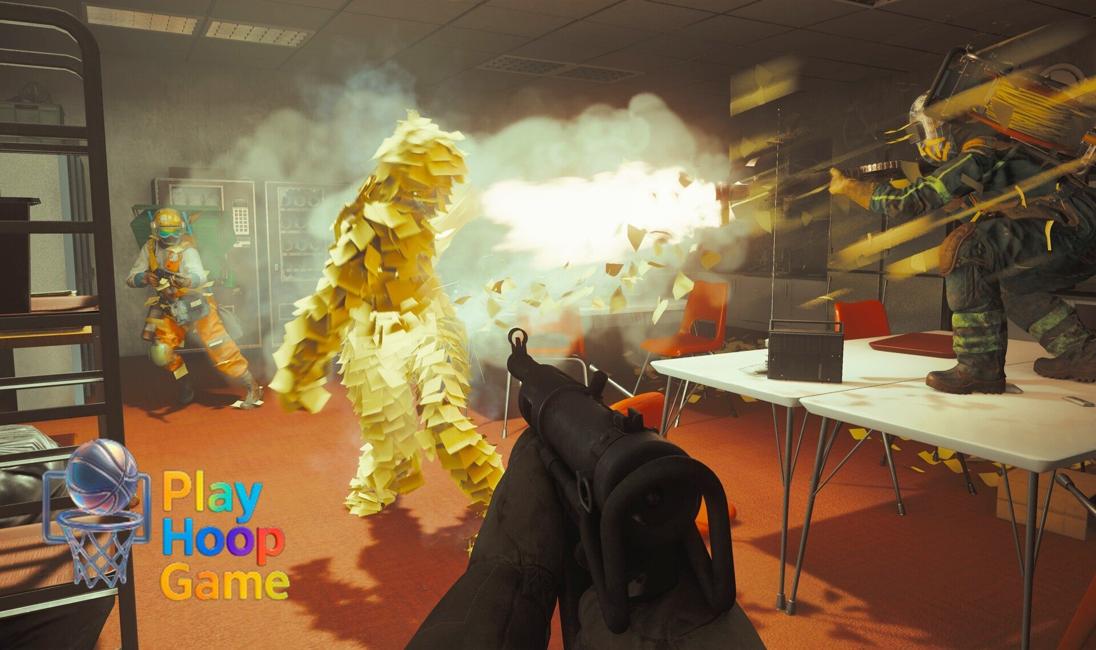Let’s get one thing straight. When I think of Remedy Entertainment, I think of dark corridors, a thermos of questionable coffee, and a man in a tweed jacket fighting shadows with a flashlight. I think of a brutalist government building shifting and contorting around me like a concrete nightmare. I think of slow-motion, physics-defying gun-fu that still feels cool twenty years later.
I do not, under any circumstances, think of "free-to-play co-op shooter."
And yet, here we are. The words "Remedy" and "failing co-op flop" have been orbiting each other in the industry ether for a while now, and it feels… wrong. Like seeing your favorite arthouse film director announce they’re making a reality TV show. It's a dissonance that rattles around in my brain. But the story here isn't as simple as a beloved studio tripping over a trend. It's weirder, more complicated, and honestly, way more interesting than that.
Because the "flop" in question never actually saw the light of day. Which, in a way, makes this whole saga even more fascinating.
The Ghost of a Game Called Vanguard
The project at the heart of all this was originally codenamed Vanguard. For years, it was Remedy’s big multiplayer experiment, co-funded by the behemoth Tencent. The pitch was a free-to-play, games-as-a-service (GaaS) title. You know the type. Battle passes, seasonal content, endless grind. All the stuff that makes corporate executives salivate and single-player story enthusiasts (hello) break out in a cold sweat.
I’ve got to admit, my heart sank every time I read an update about it. It felt like a distraction. A betrayal, even, of the very DNA that makes Remedy so special. Their games are meticulously crafted, author-driven, and gloriously weird. They are finite, deliberate experiences. GaaS is the polar opposite—a content treadmill designed to run forever. It felt like trying to make a marathon runner compete in a completely different kind of sports event; the muscles just aren't trained for it.
And then, late last year, the news broke. Remedy was hitting the reset button. Vanguard was dead. The studio bought the rights back from Tencent, announced they were ditching the free-to-play model, and rebooting the whole thing as a "premium" title under a new codename: Kestrel.
So, the game "failed" before it ever had a chance to launch. It was a failure of concept, a rejection of a business model that simply didn't fit. And this is the crucial part of the story.
Why the Alan Wake Devs Plan a Big Relaunch for This Failing Co-Op Flop
You might be wondering, why not just scrap it? Why pour more good money after bad on a project that was already struggling? The answer, I think, lies somewhere between financial necessity and creative curiosity.
From a business perspective, the logic is painfully clear. Making games like Alan Wake 2 is an astronomically expensive gamble. It was a critical darling (and my personal game of the year, by a country mile), but it’s a slow-burn, niche horror title, not a Fortnite-killer. Having another project that can generate more consistent revenue helps keep the lights on and funds the next big, weird single-player epic. It’s a portfolio strategy. Simple as that.
But the creative side is where my brain really starts buzzing. Remedy is rebooting this because the original vision wasn't working. They're reshaping it into something they can actually put their signature stamp on. It’s no longer about chasing a trend; it's about figuring out, "What does a Remedy co-op game actually look and feel like?"
That's a much more exciting question. This isn't just a relaunch; it's a reclamation. It’s the studio taking back control and saying, "Okay, let's do this, but let's do it our way." Think about it. The challenge is immense. It's like trying to solve a complex puzzle, one where you have to perfectly balance story and systems. It’s less about a constant content drip and more about getting the formula just right, like a delicate fill-water-tank-puzzle-win where one wrong move overflows the whole thing.
So, Can They Actually Pull It Off?
This is the million-dollar question, isn't it? The graveyard of failed live-service and co-op games is vast and littered with the corpses of titles from studios with far more experience in the genre. For every success, there are a dozen Anthems or Redfalls—games that promised the world and delivered a buggy, soulless mess.
But... this is Remedy. The studio that gave us the shifting, labyrinthine Oldest House in Control. The one that built the nightmarish, layered reality of The Dark Place in Alan Wake 2. Their strength is world-building and atmosphere. If anyone can create a co-op environment that feels genuinely mysterious and compelling to explore with friends, it's them.
I'm not picturing a simple horde mode. I’m imagining something more akin to paranormal expeditions. A team of players, maybe FBC agents, venturing into Altered World Events. The goal wouldn't just be to shoot everything that moves, but to solve environmental puzzles, uncover narrative threads, and survive encounters with unknowable entities. Imagine the weirdness of Control but amplified by the chaos of having three other people trying not to get turned into sludge by a possessed refrigerator. There's potential there for something truly special. A new kind of adventure game experience.
Still, the skepticism lingers. It's a tightrope walk. Lean too far into narrative, and you lose the replayability that co-op games need. Lean too far into gameplay loops and grinding, and you lose the Remedy magic. The frustrating thing is we just don't know enough yet. Kestrel is still a codename, a ghost in the machine.
All I know is that my initial dread has morphed into a cautious, deeply curious optimism. They saw the original path was leading off a cliff, and they had the courage to turn back. That, in and of itself, is a reason to pay attention.
Your Questions About Remedy's Big Gamble, Answered
Wait, did Remedy release a co-op game that I totally missed?
Nope, and that's the most common misconception! The "failing co-op flop" everyone talks about, originally called Vanguard, never actually launched. It "failed" during its development phase. Remedy realized the free-to-play, games-as-a-service model wasn't the right fit for them and decided to completely reboot the project into a premium game, now codenamed Kestrel. So you didn't miss anything; you just witnessed the messy, public process of game development.
Why are they even bothering with multiplayer if they're so good at single-player?
It mostly comes down to business and portfolio diversification. Epic single-player games like Alan Wake 2 are incredibly expensive and time-consuming to make, and their sales are concentrated around launch. A successful multiplayer game can provide a more stable, long-term revenue stream that helps fund those big, risky single-player passion projects we all love. It's a way to keep the studio financially healthy.
What's the latest on when the Alan Wake devs plan a big relaunch for their failing co-op flop?
The project, now called Kestrel, is back in the "concept and prototype" stage. In their latest financial report, Remedy stated it will "stay in this stage for the next few quarters." So, don't hold your breath. We are years away from seeing this game. They are taking their time to get the core concept right this time, which is probably a very good thing.
Is this Kestrel game connected to the Remedy Connected Universe (RCU)?
Yes! That's one of the most exciting parts. Remedy has confirmed that Kestrel (like Vanguard before it) is set within their shared universe that connects Alan Wake and Control. It's described as a multiplayer spin-off, so expect to see familiar concepts like the Federal Bureau of Control, Altered World Events, or maybe even darker, more abstract threats.

























